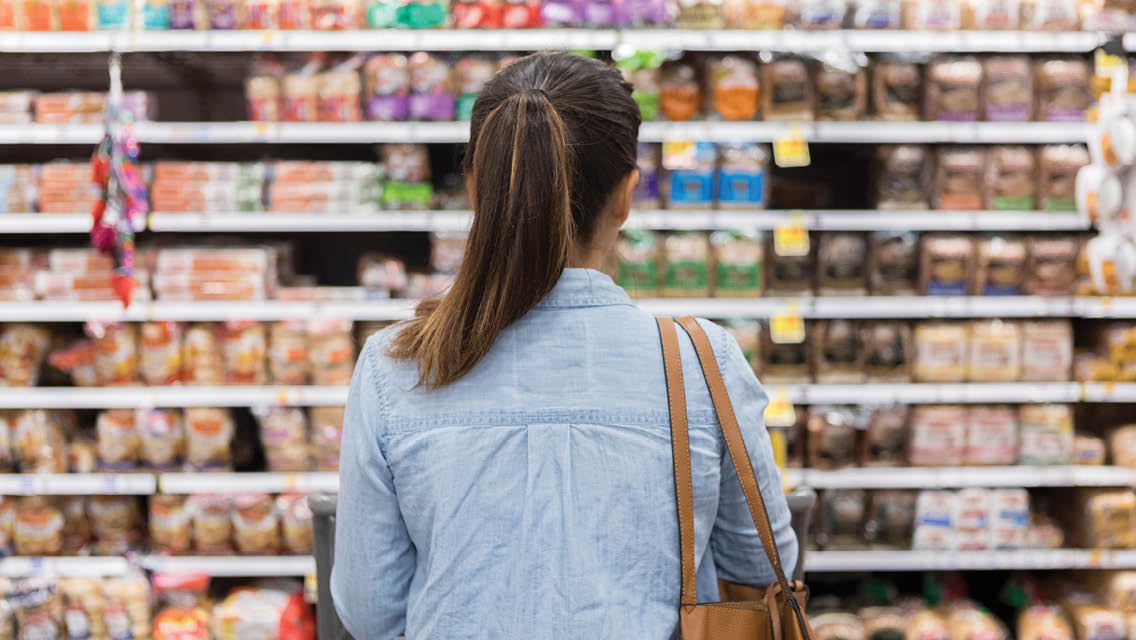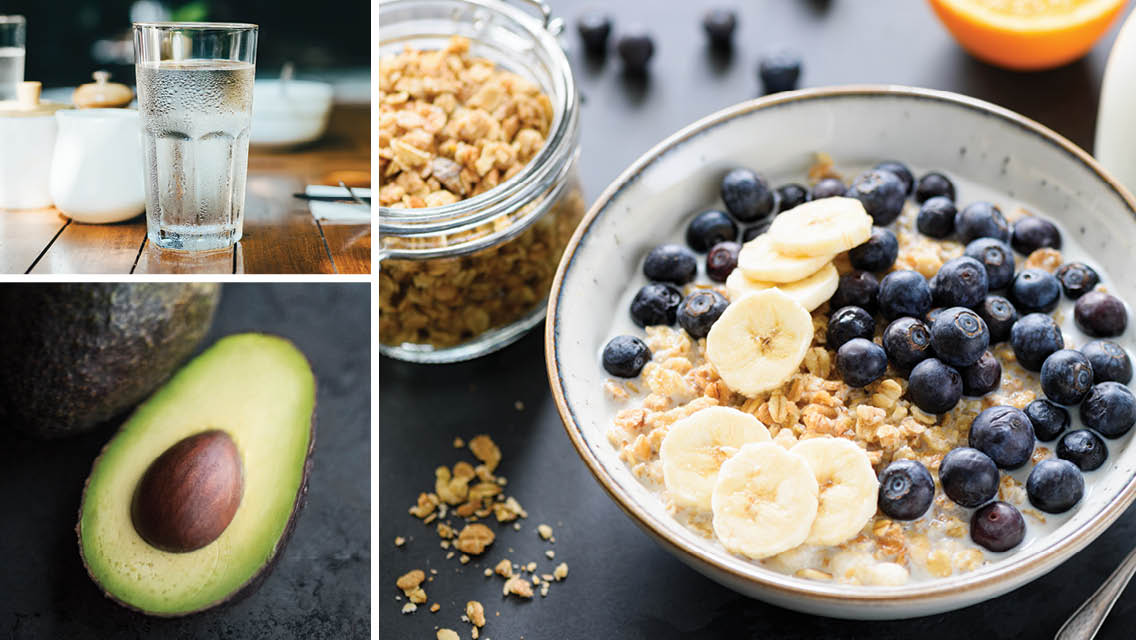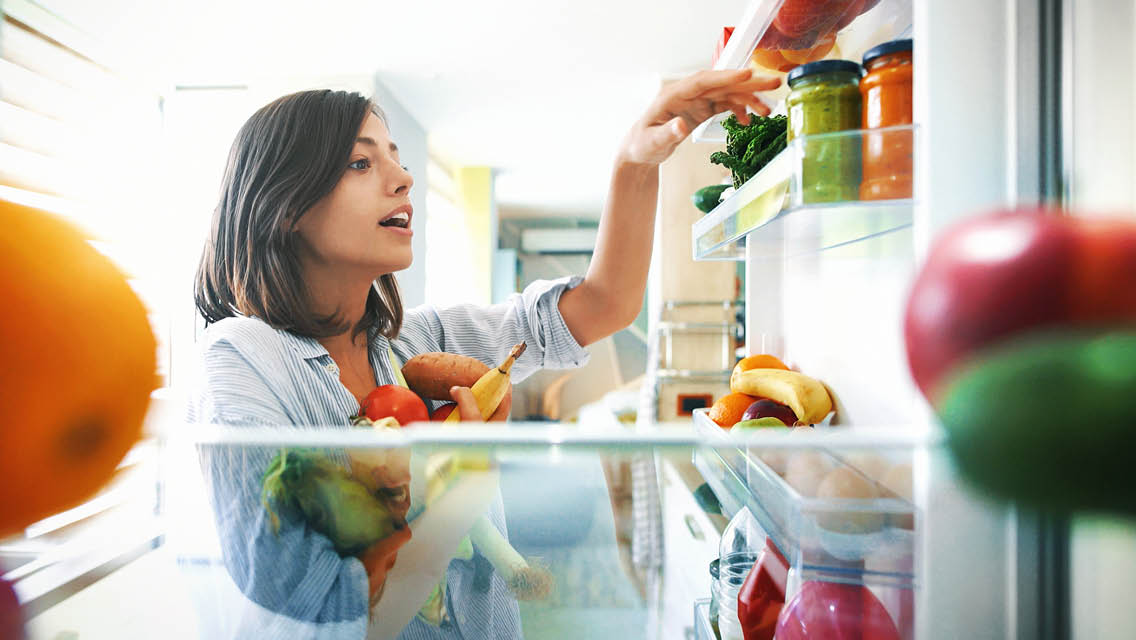When Don Baiocchi was in his 20s, he suffered serious digestive issues accompanied by brain fog, fatigue, and weakness. A recipe developer, he decided to change up his diet and began following a low-fat protocol with lots of whole grains. But this brought no relief.
Then, when a friend mentioned she was going to give up gluten, he decided to try it too — and that changed nearly everything. “I felt a lot better,” he says. “About 90 percent of my digestion issues cleared up.”
Yet he found himself with a new problem: food anxiety.
Gluten-free options weren’t nearly as abundant then as now, so eating anywhere but his own kitchen was risky. Baiocchi could never trust the dishes he ordered in restaurants that appeared to be gluten-free. What if they used glutenous soy sauce unknowingly? What if something was wheat-free but not gluten-free?
The same went for dining at friends’ homes. Eating with others became a source of stress instead of a chance to relax and celebrate.
Many of us can relate. If we have food intolerances, we might feel anxious about food allergens. Maybe we’re preoccupied by the effects certain proteins like gluten and lectins could have on our long-term health. Caloric density is another common concern. Whatever is at the root of our worries, the result is the same: Our relationship with food has become fundamentally stressful and restrictive.
Food is emotional, and anxiety around it is common. But know this: You have options. Even if you need to restrict certain food groups for health reasons, a more relaxed relationship with food is possible.
The Roots of Food Anxiety
There are a host of reasons people develop food anxiety. Painful physical reactions to certain foods, as Baiocchi experienced, are one. Others, according to Maggie Ward, MS, RDN, LDN, nutrition director of The UltraWellness Center in Lenox, Mass., include diet culture, food allergies and intolerances, celiac disease, irritable bowel syndrome, irritable bowel disease, and patterns of disordered eating, like orthorexia. (A sibling to anorexia, orthorexia is a restrictive-eating pattern that stems from fears about food quality rather than quantity and caloric value.)
Ward calls food anxiety a “fear of food, which can include a drive to be perfect with one’s food choices.” It can also involve shame, isolation, and in the case of orthorexia and other restrictive-eating disorders, physical symptoms.
“A food-restricted body can start to shut down,” says psychologist and eating-disorder specialist Rachel Millner, PsyD. “People experience bone loss. People develop osteoporosis. Their blood pressure and heart rate can be lowered.”
Food anxiety can exist beneath our conscious awareness, as it did for Melissa Urban, cofounder of Whole30, and author of 10 books, including The Whole30’s Food Freedom Forever: Letting Go of Bad Habits, Guilt, and Anxiety Around Food.
In 2009, Urban felt she was in a good place with her habits and attitude toward food. She’d been through rehab for drug addiction and had become a gym regular as part of her recovery, even teaching CrossFit classes. She’d accepted that she had to eat every two hours — she would get hangry if she didn’t — and that she battled relentless cravings for sugar and carbs.
But during a monthlong nutritional challenge that included giving up grains, dairy, added sugar, and processed foods, Urban was surprised to discover that in her sobriety she had essentially replaced drugs with food. She was using sugar to numb and distract herself so she could avoid feeling her emotions.
“Without access to the carb-dense processed foods I had relied on, I was forced to find other ways to self-soothe, comfort myself, and relieve anxiety,” she writes.
That realization spurred her to dig deeper into the roots of emotional-eating patterns. She’s since made it a mission to help free people from their food anxiety — not just by changing their diets but by changing their thinking.
What Is Food Freedom?
Urban defines food freedom as “feeling empowered to make the food decisions that feel right for you in that moment.”
She emphasizes “in that moment” because true freedom means you’re free to choose based on a range of factors — nutritional, sure, but also social and emotional.
“This morning at breakfast, my husband ordered this croissant-waffle kind of combination, and it looked amazing, but I know how gluten impacts me,” Urban says. “It makes me bloated, it makes my skin break out, and I have book-tour events for the next three days. It was not worth it for me, so I declined. [And] at no point did I feel deprived.”
She has realized that she has the final say over her own food decisions. “I can always say yes. If I want to eat croissant waffles every single day of the week, I can do that.”
Food is social, cultural, familial. “It can be love and can be comfort and can be joy and can be bonding,” Urban says. That’s why she focuses on the importance of choice. Food freedom doesn’t mean eating everything willy-nilly, regardless of how it affects you. It means making choices based on your own sense of what you need.
How To Relax Your Food Vigilance
These strategies can help you regain confidence in eating while still honoring your body’s needs.
Learn about your symptoms.
Not knowing the origins of your digestive distress can lead to a feeling of helplessness and fear around food. By contrast, learning what’s behind your symptoms can reveal a world of choices you didn’t know you had.
Hilary Davidson, a journalist and novelist, suffered from gastrointestinal distress, painful mouth ulcers, migraine, and skin rashes from the age of 8; at one point she was taking five different medications for her symptoms. Finally, at 32, she was diagnosed with celiac disease.
Her diagnosis felt freeing, Davidson says. Once she understood what was causing her distress, she could take her health into her own hands. She quit gluten and no longer needed her prescription meds. She now helps other people with celiac disease, through her website and Substack newsletter, Gluten-Free Guidebook.
Davidson gets emails from readers who’ve just been diagnosed — or from their family members who are unsure how to proceed. “Sometimes people think the whole household will have to be gluten-free, or that they can’t go to restaurants unless the entire place is gluten-free.”
Fortunately, neither of those things is true. “I understand that people feel scared by the diagnosis,” she says. “It can make people feel [like] their world is smaller, instead of realizing now the information is in your hands to expand your world now. You have this one thing that you have to avoid and everything else is open to you.”
Keep a food journal.
Marc David, MA, founder of the Institute for the Psychology of Eating, suggests journaling and keeping a written inventory of your beliefs about food and diet. Write down everything that you believe is good and bad for you, he advises. Then go over that list and ask yourself if, at any point, you’re being extreme.
“Can I include some of these ‘bad’ foods in my diet — especially if I’m going to eat them anyway?” David says. Unless you’re restricting for specific health reasons, like an allergy or celiac disease, the answer could be yes, at least provisionally. This gives you one more dietary choice — and one fewer food item to feed your anxiety.
Journaling is also a great way to track your physical responses to certain foods. Baiocchi tried this and discovered that, while gluten is a hard no for him, dairy was sometimes OK. This offered him a whole class of foods — and a less restrictive diet.
Keeping this type of journal can help you make more conscious, informed decisions while building your confidence. Tracking your physical and emotional reactions to certain foods can train you to begin tuning in to your body.
Trust yourself.
Trusting yourself is key to feeling more relaxed around food. Millner, who works with people healing from eating disorders, says that “diet culture takes us away from any kind of trusting relationship with our body and makes it all about external choices.”
She points out that relying on external sources to help us decide what to eat can quickly morph into fear-based decision-making. “Diet culture makes us afraid of food because it tells us to fear weight gain,” she says. “Freedom happens when we stop making decisions about food based on a set of rules or a set of external mandates and are able to tune in to our body’s needs.”
David likens food anxiety to dissociation. When you’re feeling anxiety about food, he says, you’re not in your body — you’re only in your head. He suggests picturing your breath in your body, literally breathing into your upper body, your lower body, your feet. Take five or 10 slow, deep breaths before you start eating to ground yourself.
“The body is a very wise animal,” he notes. “We just have to start to listen to it more.”
Free food from morality.
Urban grew up with older aunts and cousins who measured their food choices in moral terms. “Every time we got together for coffee or a holiday it was, ‘This pie is going straight to my hips,’ or ‘I’m saving my calories for wine,’ or ‘She’s being so good — she’s not eating dessert today,’” she recalls.
Those experiences led Urban to moralize her own food choices. Learning to “uncouple morality from food” was a gradual process for her.
Today, she reports that she hasn’t felt guilty about or around food for many years. She also counsels people to change their moral approach to food. If someone says, “I feel so guilty I ate those chips,” she advises them to correct it with, “Excuse me, no I don’t feel guilty — I haven’t done anything wrong.” Consistently checking our thoughts and words for food-related value judgments can make a world of difference.
David concurs. “Food freedom is not about morality with food, with some foods being good and some foods being bad,” he says, adding that all-or-nothing thinking contributes to anxiety, so reducing it can help.
Slow down.
For many people, speed-eating is a sign of food anxiety. “When they eat, they eat fast, because they’re thinking food is the enemy,” David explains. “Whenever you encounter the enemy, you want to get it over with.”
When we eat quickly, the brain doesn’t have enough time to register the experience. “When the brain doesn’t experience taste, pleasure, aroma, satisfaction — what does it do?” asks David. “It says, I’m hungry. And you keep eating.”
Slowing down at mealtimes can be as simple as setting down your fork between bites or looking up and out the window for a moment. Pausing in this way can help activate the parasympathetic nervous system, turning on the relaxation response so your body enters the rest and digest phase.
“We’re seeking taste. We’re seeking satisfaction. That is the biological imperative,” says David. “You can only experience those when you’re relaxed.”
Reframe food as a friend.
When you’ve been thinking of food as your enemy, learning to see it as a friend won’t happen overnight. So David suggests focusing on one simple, neutral fact: Humans must eat. “Make peace with the fact that we are designed to seek food, to eat food, to enjoy food, and to need food for our biological survival.”
Gentleness is key to successful habit change, as well. When working with her clients, Millner doesn’t try to go right from an eating disorder to flexible and fluid eating. “There has to be a middle step,” she explains. “And, usually, that middle step is making sure that meals and snacks happen every day at certain times, that people are fully nourished.”
This might sound like rigid discipline, but structure can be its own kind of freedom, she says. “It’s coming from a place of healing and not a place of the eating disorder or the dieting mind.”
Ward sees a lot of people in her practice who suffer from food allergies and sensitivities. Even when a person has eliminated problem foods and begun to recover from symptoms, fear can linger.
Her goal is to help them rebuild their relationship with food, which involves learning to see food not as their enemy but as part of their medicine. “That’s really what we practice here,” she says. “Food as medicine.”
Urban takes it one step further, advising her readers to “keep your diet broad and joyful.” Even if you must avoid certain foods to maintain your health, you can still appreciate and enjoy the foods you can have, she notes. Eating in a joyful, sustainable, and satisfying way can be just as supportive as the foods you choose.





This Post Has 0 Comments